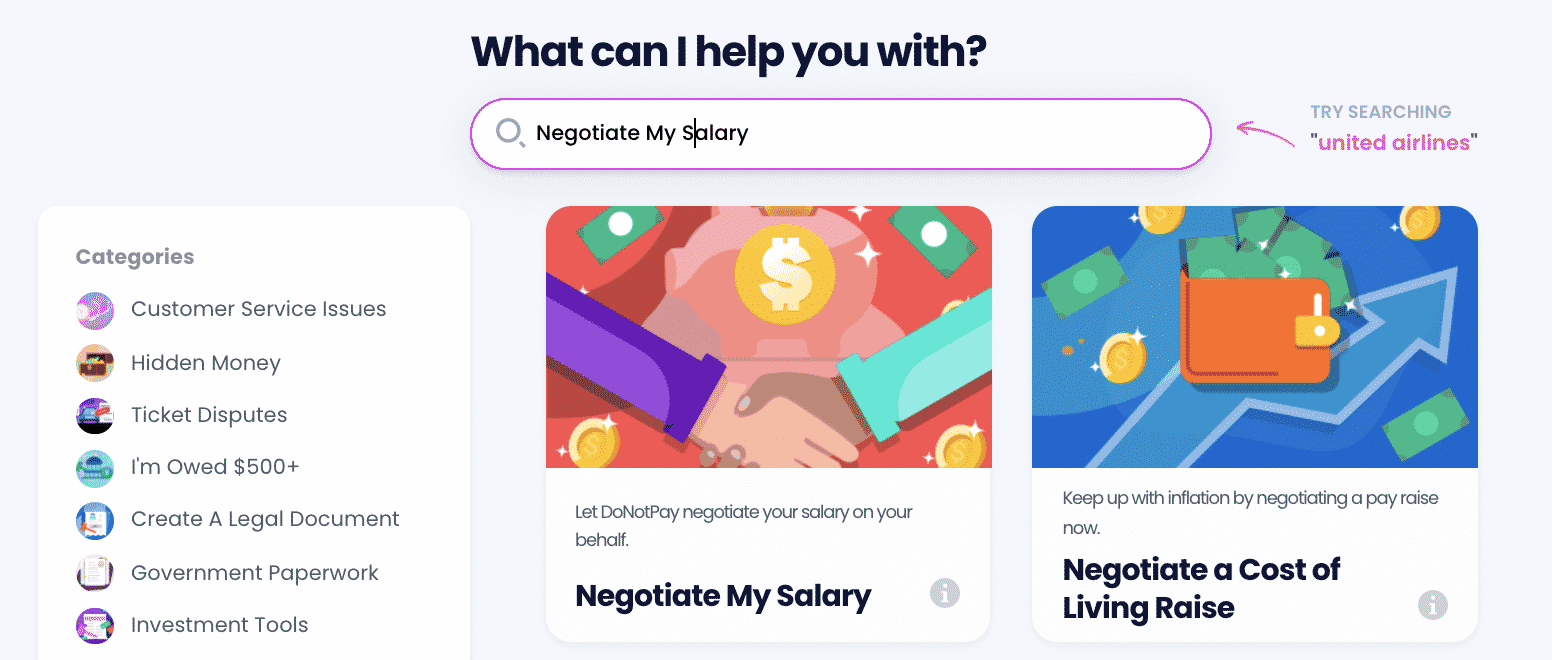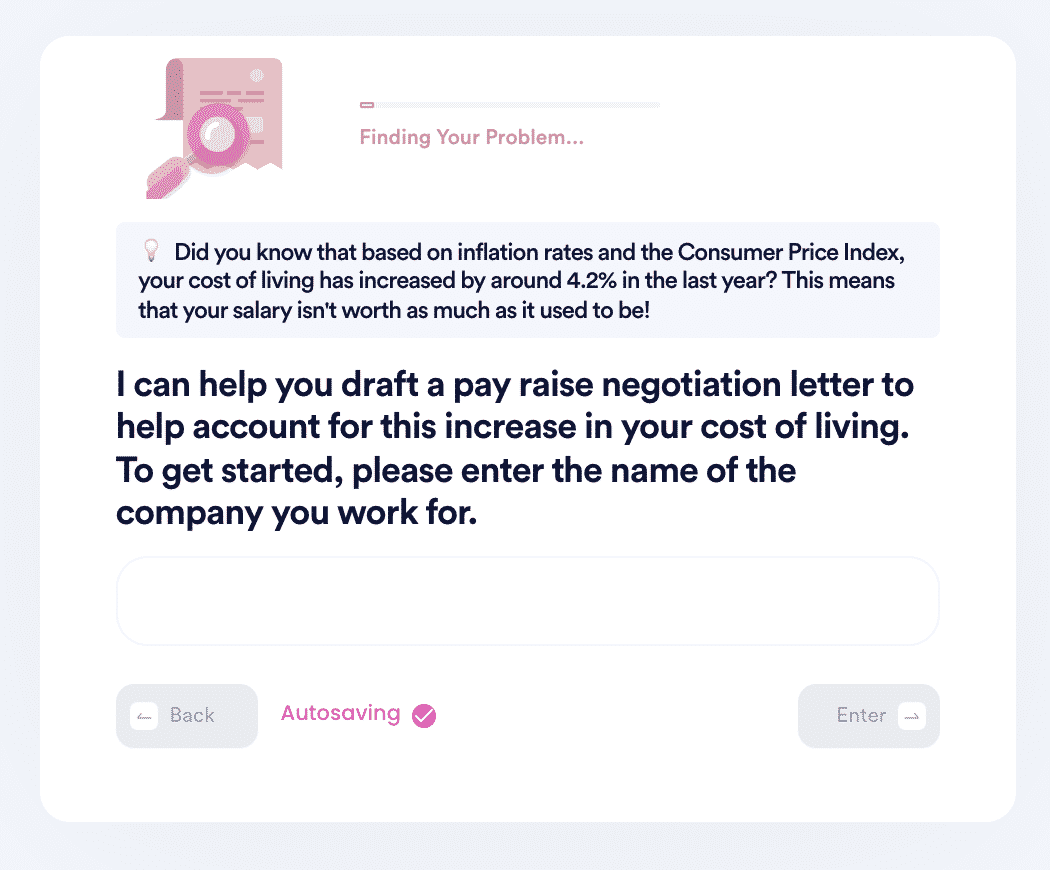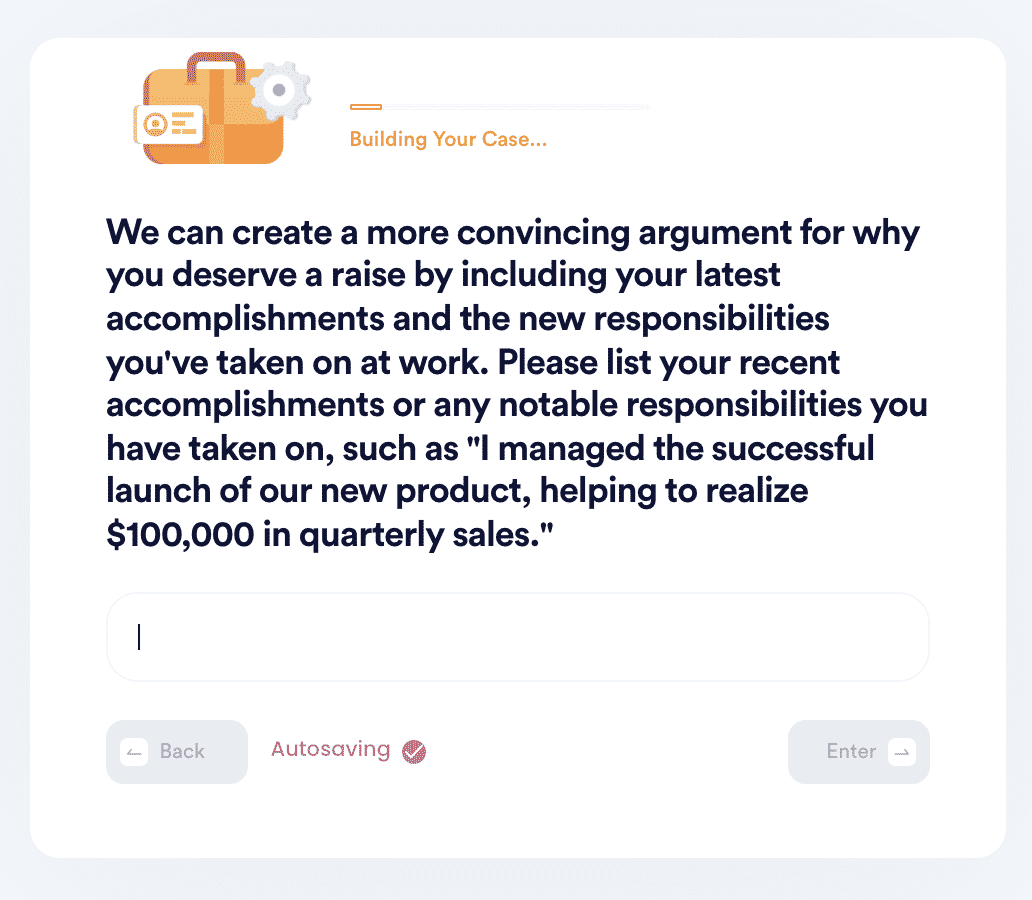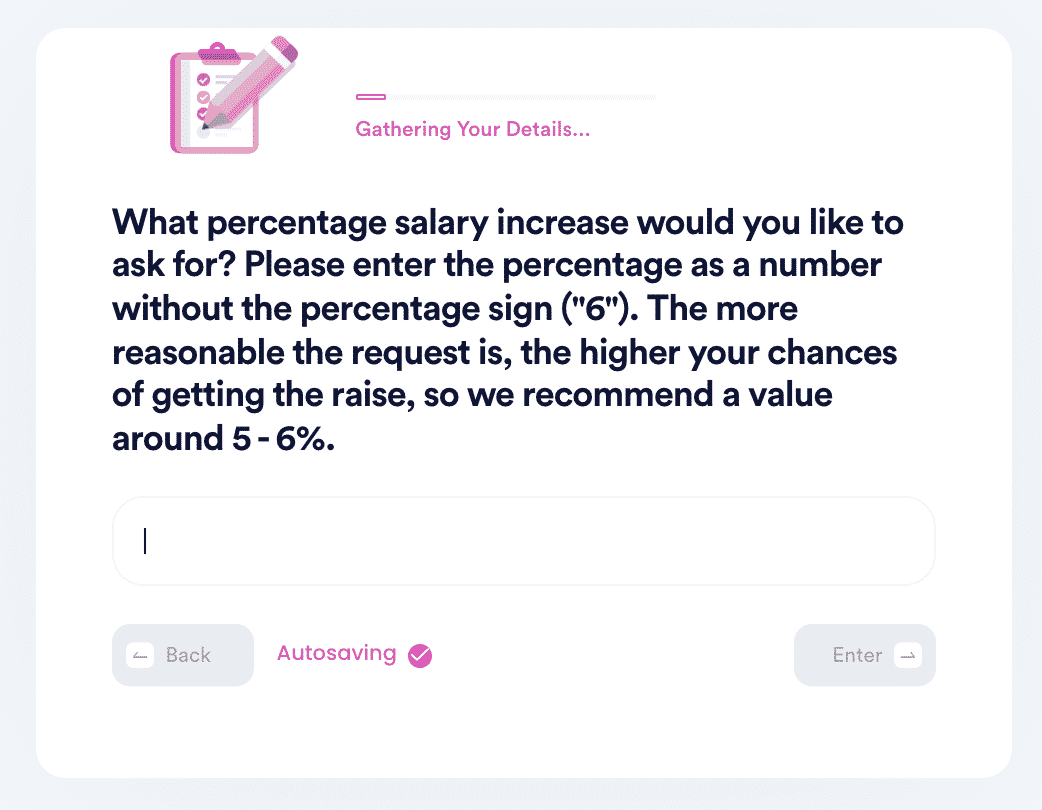How to Negotiate Salary With Current Employer and WIN
Have you been working consistently for your employer but feel like your last pay raise just wasn't enough? Do you feel like you are working harder than ever but your paycheck still doesn't seem to cover everything? This may have less to do with your work ethic and value as an employee and more to do with the way rising inflation has been undercutting incomes. Recent studies reveal how the rising costs of living are outpacing wage growth, leaving American workers feeling cash-strapped and burned out.
Before you decide to throw in the towel and start hunting for a new career, take a moment to carefully consider whether negotiating for a salary increase with your current employer is an option. You have every reason to request an increase in compensation, ensuring you are paid what you are worth and allowing you to breathe a bit easier in an increasingly expensive world. If you're not sure how to go about , keep reading DoNotPay's guide to winning a better salary.
How Often Should I Get a Raise?
Although the answer to this question will certainly vary from company to company, you should expect to receive occasional raises consistent with your tenure and professional growth. Here are a few common ways employers determine the right time for a pay raise:
- Once a Year: Most companies schedule annual performance reviews, and commonly dole out a yearly pay raise following a positive evaluation.
- Bi-annually: A few companies are shifting away from annual pay raises and toward more frequent salary reviews to keep workers happy and motivated at least twice a year.
- Merit-Based: Also known as "pay-for-performance", merit-based compensation is based on a set of criteria defined by the employer. If you can exceed the goals or expectations of your boss, you may be eligible for this typically quarterly raise.
What are Good Reasons to Ask For a Higher Salary?
Aside from rising inflation which affects everybody equally, you should explore the various ways you are personally deserving of a raise. Think about what positive impacts you have made on your company and provide concrete examples that demonstrate your worth. Here are several arguments you might consider using in your negotiation for a higher salary:
- You have taken on more responsibilities than your original job description requires.
- You have contributed to measurable growth in the company.
- You have learned new skills or gained useful certifications.
- You can prove your current salary is below the industry standard.
- Your loyalty and hard work have not been rewarded for 18 months or more.
How to Negotiate a Salary Increase With Your Boss
Before you approach your boss with a request for a salary increase, it will pay to do your homework. Plan what you want to say ahead of time so that you don't feel nervous or find yourself stumbling over words. Prepare a script if necessary and compile as many facts as you can. Here are some helpful tips for approaching this important negotiation with your boss:
| Research the market value of your skillset | Use payscale calculators from sites like Glassdoor to determine how much you are worth. Come up with a salary figure you plan to ask for and be as exact as possible. |
| Provide examples of your impact | Reference a time you were rewarded for excellent work, solved a difficult problem, or generated significant revenue for the company. By emphasizing your accomplishments, you can demonstrate what you bring to the table. |
| Carefully consider the timing | Pay attention to whether performance reviews are coming up, or whether your boss budgets for raises during a certain time of the year. If the company is not doing well financially, or the work environment is currently stressful, it might be best to wait. |
| Maintain an open mind for other options | Sometimes a monetary raise is just not in the cards, but that doesn't mean you can't be rewarded in other ways. Explore alternative forms of compensation like increased benefits, extra vacation days, bonuses, stock options, or paid expenses. |
What to Do if You Need Help Negotiating a Salary Increase in Your Current Job
No matter how many skills and accomplishments you have, you'll find it hard to earn the salary you truly deserve if you lack the skill of negotiation. It can be difficult to muster up the courage to ask your boss to speak privately with you about your salary. Many people feel this way, and that's why there's a perfect solution to help you earn the raise you know you deserve.
Negotiate a Salary Increase With the Help of DoNotPay
Ready to ask for a raise but don't know where to begin? Get the ball rolling with a little help from DoNotPay with these four easy steps:
- Search “negotiate my salary” on DoNotPay.

- Enter the name of your company and the industry you work in, so we can find the right wage statistics for your role.

- Answer a series of questions regarding your qualifications and achievements, relocation expenses, and other job offers if applicable.

- Enter the new base salary you would like to request.

And that's it! Once the information is finalized, DoNotPay will generate an official salary negotiation letter that you can then email or present to your employer which is by the way better than talking over the phone.
Why Is DoNotPay the Best Way to Negotiate Salary?
Salary negotiations can be stressful and emotionally exhausting, whether you are gauging the best time to ask your current boss for a raise or you are looking to negotiate the salary of a new job offer. Once you've done your research and honed in on your skills, it could take hours to draft an official salary negotiation letter. Why not let DoNotPay handle that part for you?
DoNotPay has the expertise and advanced technology to make your next salary increase negotiation faster, easier, and more successful than ever. Our negotiation services can help you win your next promotion, or even counter-offer a —all with the click of a button.
What Else Can DoNotPay Do?
Signing up for the services of DoNotPay can land you much more than negotiation assistance. We're in the business of helping you win all of life's little battles, including:
- Disputing Parking Tickets
- Filing Complaints
- Reducing Property Taxes
- Demanding Refunds
- Canceling Unwanted Subscriptions
- Claiming Warranties
- Notarizing Documents
- Fighting Workplace Discrimination
Explore everything that DoNotPay has to offer by


